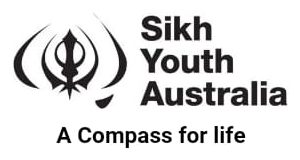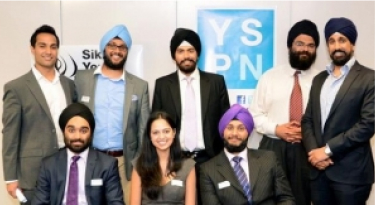Posted on 16/10/21 by Saranpaal Calais | Category: Events Press Sikhism
What is honoured in a community, will be cultivated there
The Young Sikh Professional Network (YSPN), an initiative of SYA, was recently invited to present at the Regional Pravasi Bhartiya Divas (Overseas Indians Day) in Sydney on the 11th of November held at the Sydney Convention and Exhibition Centre. The 2013 Convention was the seventh such conference held outside India.
The conference was organised by the Indian Government and attended by very senior and influential members of the Indian Diaspora in Australia and New Zealand. Present were also prominent members of the business community from India, several Ministers from India and the Premier Barry O’Farrell.
The below paper, authored and presented by the Co-President of YSPN, Mr Karan Anand, is a refreshing take on the mandate and role of our youth as part of a fragile and growing community.
Allow me to introduce myself – my name is Karan Anand and I’m 26 years old. Along with being co-President of the Young Sikh Professionals Network, I’m also a management consultant at Deloitte.
I thought I’d spend a little time today talking you through my own story and the formation and mandate of YSPN.
I was born in Mumbai, and migrated to Australia at a very young age with my parents. We lived in Sydney for a short time before migrating to Darwin, where I completed the majority of my schooling.
At the time Darwin had quite a small Indian community – totalling about 100 families. Within that probably about 5 – 10 were Punjabi, including about 5 turbaned Sikh men and one turbaned Sikh boy – me.
To say that I stood out in every aspect of life in a place like Darwin would be a bit of an understatement.
But as I reflect back, there were a number of things I learnt from this pretty unique childhood:
1) I couldn’t choose ambiguity – I had to truly understand what I stood for and believed in. I wore my beliefs on my person and these were considerably different from anyone else’s
2) I represented the first impression for an entire religion – that’s not a responsibility one can take lightly
3) One can wallow in the misery of being ‘different’ or thrive in being ‘special’. I chose the latter
But most importantly it set a sense of purpose for me quite early on in my life. I developed a mission to honour the legacy of those who came before me and to set a set a standard for those that would follow.
Moving to Sydney in 2005 for University, I was surprised to see the ‘geographical ethnic clustering’ if you will, that existed in this city. For example, the Vietnamese lived in Cabramatta, the Jews lived in St Ives, the Chinese lived in Chatswood and of course the Indians lived in Parramatta and Harris Park.
If we were to take a spectrum from those who had ‘fully assimilated’ to those that still preserved much of their Indian heritage, naturally given Sydney’s large Indian population – you’d see the full range here. This being in contrast to Darwin, where in the majority, the Indian community had struck a happy middle between these two ends of the spectrum.
Diving more deeply into the Sikh community specifically, it appeared that a similar disposition existed, but potentially, a greater polarisation towards each end of the spectrum.
I must point out here that at this time, I was a university student, enjoying life as university students do. However, there still existed a niggling feeling in the back of my mind that I wasn’t contributing to the progress of my community.
Later, I was fortunate enough to be introduced to an organisation called Sikh Youth Australia – who were doing fantastic work in mobilising and engaging youth in the Sikh community, with a focus mostly on school students and university students.
What we noted though, was that there was a distinct lack of engagement and focus on young professionals and that this was something we needed to tackle.
But why engage young professionals Sikhs? What’s the virtue in engaging young professionals?
Well, we distilled it into a few key reasons:
- That, collectively, we have a legacy worth preserving
- That we have more that unites us than separates us
- This is the most important one. We are the children of migrants or migrants ourselves. Never has there been a generation as large as ours of Australian educated Sikh professionals. We are the first; and as the first we have the unique opportunity to shape our agenda for generations to come. No one has had this opportunity before and no one will have the opportunity to be first ever again.
- That we have a responsibility to act AND we bear the burden of that responsibility collectively; AND we bear it now.
- So, as a result, a group of us banded together to form what we now call YSPN.
Ultimately, what we’re trying to do is to reshape the prism through which the community views itself, views success and then collectively succeeds together. We assert:
1) That you can preserve traditional values whilst being both socially and economically progressive
2) That ultimately we should be judged on our contribution to the community at large, not just ourselves or our own backyards
3) That the community’s definition of ‘success’ is not a factor of a pre-defined script, but a collection of experiences AND that this is a personal pursuit
Too long have our ‘community issues’ been beset by internal bickering on the one hand and self-pity on the other. Through forming this organisation, we are attempting to change the dialogue. Most importantly, we are united under a single purpose of growing the success and stature of the Young Sikh community in Australia, ultimately for the benefit of all Australians.
To prove that this is not all talk, YSPN has in its first year of formation held 5 events in Sydney and recently a first in Melbourne. We have had over 400 people attend these events, hosted an eminent list of speakers and developed a base of over 600 followers on social media.
We’ve set ourselves a challenge – inspired by none other than Plato, who said ‘What is honoured in a community, will be cultivated there’. We have collectively decided to honour something different, and we’re going cultivate something new as a result.
So I now turn this challenge back on to you – onto the Indian community at large. What are we going to honour in this country and as a result, what kind of community will we cultivate?


